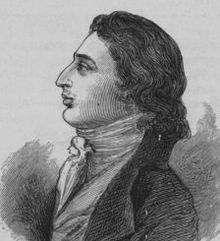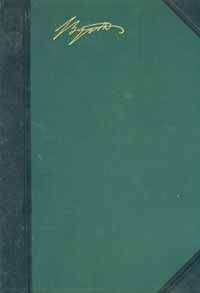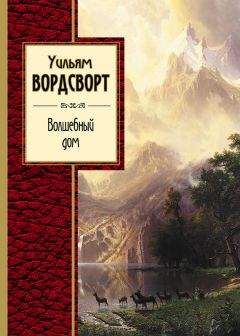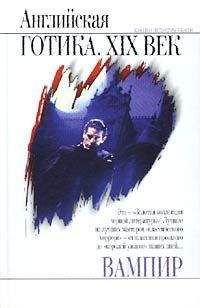Уильям Вордсворт - Избранная лирика
На электронном книжном портале my-library.info можно читать бесплатно книги онлайн без регистрации, в том числе Уильям Вордсворт - Избранная лирика. Жанр: Поэзия издательство неизвестно, год 2004. В онлайн доступе вы получите полную версию книги с кратким содержанием для ознакомления, сможете читать аннотацию к книге (предисловие), увидеть рецензии тех, кто произведение уже прочитал и их экспертное мнение о прочитанном.
Кроме того, в библиотеке онлайн my-library.info вы найдете много новинок, которые заслуживают вашего внимания.
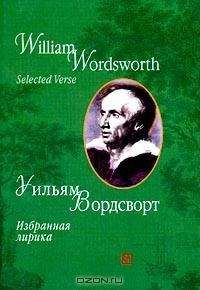
Уильям Вордсворт - Избранная лирика краткое содержание
Избранная лирика читать онлайн бесплатно
The Ruined Cottage
'TWAS summer, and the sun had mounted high:
Southward the landscape indistinctly glared
Through a pale steam; but all the northern downs,
In clearest air ascending, showed far off
Their surfaces with shadows dappled o'er 5
Of deep embattled clouds. Far as the sight
Could reach those many shadows lay in spots
Determined and unmoved, with steady beams
Of clear and pleasant sunshine interposed;
Pleasant to him who on the soft cool moss 10
Extends his careless limbs beside the root
Of some huge oak whose aged branches make
A twilight of their own, a dewy shade
Where the wren warbles while the dreaming man,
Half-conscious of that soothing melody, 15
With sidelong eye looks out upon the scene,
By those impending branches made more soft,
More soft and distant. Other lot was mine.
Across a bare wide common I had roiled
With languid feet which by the slippery groan 20
Were baffled still; and when I stretched myself
On the brown earth my limbs from very heat
Could find no rest, nor my weak arm disperse
The insect host which gathered round my face
And joined their murmurs to the tedious noise 25
Of seeds of bursting gorse that crackled round.
I rose and turned towards a group of trees
Which midway in that level stood alone;
And thither come at length, beneath a shade
Of clustering elms4 that sprang from the same root 30
I found a ruined house, four naked walls
That stared upon each other. I looked round
And near the door I saw an aged man
Alone and stretched upon the cottage bench,
An iron-pointed staff lay at his side. 35
With instantaneous joy I recognized
That pride of nature and of lowly life,
The venerable Armytage, a friend
As dear to me as is the setting sun..
Two days before 40
We had been fellow-travellers, I knew
That he was in this neighbourhood, and now
Delighted found him here in the cool shade.
He lay, his pack of rustic merchandise
Pillowing his head. I guess he had no thought 45
Of his way-wandering life. His eyes were shut,
The shadows of the breezy elms above
Dappled his face. With thirsty heat oppressed
At length I hailed him, glad to see his hat
Bedewed with water-drops, as if the brim 50
Had newly scooped a running scream. He rose
And pointing to a sunflower, bade me climb
The [] wall where that same gaudy flower
Looked out upon the road. It was a plot
Of garden-ground now wild, its matted weeds 55
Marked with the steps of those whom its they passed,
The gooseberry-trees that shot in long lank slips.
Or currants hanging from their leafless stems
In scanty strings, had tempted to o'erleap
The broken wall. Within that cheerless spot, 60
Where two tall hedgerows of thick willow boughs
Joined in a damp cold nook, I found a well.
Half covered up with willow-flowers and weeds,
I slaked my thirst and to the shady bench
Returned, and while I stood unbonneted 65
To catch the motion of the cooler air
The old man said, 'I see around me here
Things which you cannot see. We die, my friend,
Nor we alone, but that which each man loved
And prized in his peculiar nook of earth 70
Dies with him, or is changed, and very soon
Even of the good is no memorial left.
The poets, in their elegies and songs
Lamenting the departed, call the groves,
They call upon the hills and streams to mourn, 75
And senseless rocks — nor idly, for they speak
In these their invocations with a voice
Obedient to the strong creative power
Of human passion. Sympathies there are
More tranquil, yet perhaps of kindred birth, 80
That steal upon the meditative mind
And grow with thought. Beside yon spring I stood,
And eyed its waters till we seemed to feel
One sadness, they and L For them a bond
Of brotherhood is broken: time has been 85
When every day the touch of human hand
Disturbed their stillness, and they ministered
To human comfort. When I stooped to drink
A spider's web hung to the water's edge,
And on the wet and slimy footstone lay 90
The useless fragment of a wooden bowl;
It moved my very heart. The day has been
When I could never pass this road but she
Who lived within these walls, when I appeared,
A daughter's welcome gave me, and I loved her 95
As my own child. Oh sir! The good die first,
And they whose hearts are dry as summer dust
Burn to the socket, Many a passenger
Has blessed poor Margaret for her gentle looks
When she upheld the cool refreshment drawn 100
From that forsaken spring, and no one came
But he was welcome, no one went away
But that it seemed she loved him. She is dead,
The worm is on her cheek, and this poor hut,
Stripped of its outward garb of household flowers, 105
Of rose and sweetbriar, offers to the wind
A cold bare wall whose earthy top is tricked
With weeds and the rank speargrass. She is dead,
And nettles rot and adders sun themselves
Where we have sat together while she nursed 110
Her infant at her breast. The unshod colt,
The wandering heifer and the potter's ass,
Find shelter now within the chimney-wall
Where I have seen her evening hearthstone blaze
And through the window spread upon the road 115
Its cheerful light. You will forgive me, sir,
But often on this cottage do I muse
As on a picture, till my wiser mind
Sinks, yielding to the foolishness of grief.
She had a husband, an industrious man, 120
Sober and steady. I have heard her say
That he was up and busy at his loom
In summer ere the mower's scythe had swept
The dewy grass, and in the early spring
Ere the last star had vanished. They who passed 125
At evening, from behind the garden-fence
Might hear his busy spade, which he would ply
After his daily work till the daylight
Was gone, and every leaf and flower were lost
In the dark hedges. So they passed their days 130
In peace and comfort and two pretty babes
Were their best hope next to the God in heaven.
You may remember, now some ten years gone,
Two blighting seasons when the fields were left
With half a harvest. It pleased heaven to add 135
A worse affliction in the plague of war;
A happy land was stricken to the heart —
'Twas a sad time of sorrow and distress.
A wanderer among the cottages
I with my pack of winter raiment saw 140
The hardships of that season. Many rich
Sunk down us in a dream among the poor,
And of the poor did many cease to be,
And their place knew them not. Meanwhile, abridged
Of daily comforts, gladly reconciled 145
To numerous self-denials, Margaret
Went struggling on through those calamitous years
With cheerful hope. But ere the second autumn,
A fever seized her husband. In disease
He lingered long, and when his strength returned 150
He found the little he had stored to meet
The hour of accident, or crippling age,
Was all consumed. As I have said, 'twas now
A time of trouble: shoals of artisans
Were from their daily labour turned away 155
Го hang for bread on parish chanty
They and their wives and children — happier far
Could they have lived as do the little birds
That peck along the hedges, or the kite
That makes her dwelling in the mountain rocks. 160
Ill fared it now with Robert, he who dwelt
In this poor cottage. At his door he stood
And whistled many a snatch of merry tunes
That had no mirth in them, or with his knife
Carved uncouth figures on the heads of sticks; 165
Then idly sought about through every nook
Or house or garden any casual task
Of use or ornament and with a strange,
Amusing but uneasy novelty
He blended where he might the various tasks 170
Of summer, autumn, winter, and of spring,
But this endured not; his good humour soon
Became a weight in which no pleasure was,
And poverty brought on a petted mood
And a sore temper. Day by day he drooped, 175
And he would leave his home, and to the town
Without an errand would he turn his steps,
Or wander here and there among the fields.
One while he would speak lightly of his babes
And with a cruel tongue; at other times 180
He played with them wild freaks of merriment,
And 'twas a piteous thing to see the looks
Of the poor innocent children. "Every smile",
Said Margaret to me here beneath these trees,
"Made my heart bleed.” At this the old man paused, 185
And looking up to those enormous elms
He said, "Tis now the hour of deepest noon.
At this still season of repose and peace,
This hour when all things which are not at rest
Are cheerful, while this multitude of flies 190
Fills all the air with happy melody,
Why should a tear be in an old man's eye?
Why should we thus with an untoward mind,
And in the weakness of humanity
From natural wisdom turn our hearts away, 195
To natural comfort shut our eyes and ears,
And feeding on disquiet, thus disturb
The calm of Nature with our restless thoughts?'
He spake with somewhat of a solemn tone,
But when he ended there was in his face 200
Such easy cheerfulness, a look so mild,
That for a little time it stole away
All recollection, and that simple tale
Passed from my mind like a forgotten sound.
A while on trivial things we held discourse, 205
To me soon tasteless. In my own despite
I thought or that poor woman as or one
Whom I had known and loved. He had rehearsed
Her homely tale with such familiar power,
With such an active countenance, an eye 210
So busy, that the things of which he spake
Seemed present, and, attention now relaxed,
There was a heartfelt chillness in my veins.
I rose, and turning from that breezy shade
Went out into the open air, and stood 215
To drink the comfort of the warmer sun.
Long time I had not stayed ere, looking round
Upon that tranquil ruin, I returned
And begged of the old man that for my sake
He would resume his story.
He replied, 220
It were a wantonness, and would demand
Severe reproof, if we were men whose hearts
Could hold vain dalliance with the misery
Even of the dead contented thence to draw
A momentary pleasure, never marked 225
By reason, barren of all future good.
But we have known that there is often found
In mournful thoughts, and always might be found,
A power to virtue friendly; were’t not so
I am a dreamer among men, indeed 230
An idle dreamer, Tis a common tale
By moving accidents uncharactered,
A tale of silent suffering, hardly clothed
In bodily form, and to the grosser sense
But ill adapted — scarcely palpable 235
To him who does not think. But at your bidding
I will proceed.
While thus it fared with them
To whom this cottage till that hapless year
Had been a blessed home» it was my chance
To travel in a country far remote; 240
And glad I was when, halting by yon gate
That leads from the green lane, again I saw
These lofty elm-trees. Long I did not rest —
With many pleasant thoughts I cheered my way
O'er the flat common. At the door arrived, 245
I knocked, and when I entered, with the hope
Of usual greeting, Margaret looked at me
A little while, then turned her head away
Speechless, and sitting down upon a chair
Wept bitterly. I wist not what to do, 250
Or how to speak to her. Poor wretch! At last
She rose from off her seat — and then, oh sir!
I cannot tell how she pronounced my name:
With fervent love, and with a face of grief
Unutterably helpless, and a look 255
That seemed to cling upon me, she enquired
If I had seen her husband. As she spake
A strange surprise and fear came to my heart,
Nor had I power to answer ere she told
That he had disappeared — just two months gone- 260
He left his house: two wretched days had passed,
And on the third by the first break of light,
Within her casement full in view she saw
A purse of gold. "I trembled at the sight",
That placed it there, And on that very day
By one, a stranger, from my husband sent,
The tidings came that he had joined a troop
Of soldiers going to a distant land.
He left me thus. Poor man, he had not heart 270
To take a farewell of me, and he feared
That I should follow with my babes, and sink
Beneath the misery of a soldier's life”.
This tale did Margaret tell with many tears,
And when she ended I had little power 275
To give her comfort, and was glad to take
Such words of hope from her own mouth as served
To cheer us both. But long we had not talked
Ere we built up a pile of better thoughts,
And with a brighter eye she looked around 280
As if she had been shedding tears of joy.
We parted. It was then the early spring;
I left her busy with her garden tools,
And well remember, o'er that fence she looked,
And, while I paced along the footway path, 285
Called our and sent a blessing after me,
With tender cheerfulness, and with a voice
That seemed the very sound of happy thoughts.
I roved o'er many a hill and many a dale
With this my weary load, in heat'and cold, 290
Through many a wood and many an open ground,
In sunshine or in shade, in wet or fair,
Now blithe, now drooping, as it might befall;
My best companions now the driving winds
And now the "trotting brooks" and whispering trees, 295
And now the music of my own sad steps,
With many a short-lived thought that passed between
And disappeared. I came this way again
Towards the wane of summer, when the wheat
Was yellow, and the sofr and bladed grass 300
Sprang up afresh and o'er the hayfield spread
Its tender green. When I had reached the door
I found that she was absent. In the shade
Where we now sit I waited her return.
Her cottage in its outward look appeared 305
As cheerful as before, in any show
Of neatness little changed — but that I thought
The honeysuckle crowded round the door
And from the wall hung down in heavier wreaths,
And knots of worthless sconecrop started out 310
Along the window's edge, and grew like weeds
Against the lower panes. I turned aside
And strolled into her garden, It was changed.
The unprofitable bindweed spread his bells
From side to side, and with unwieldy wreaths 315
Had dragged the rose from its sustaining wall
And bent it down to earth31 The border tufts,
Daisy, and thrift, and lowly camomile,
And thyme, had straggled out into the paths
Which they were used to deck.
Ere this an hour 320
Was wasted. Back I turned my restless steps,
And as I walked before the door it chanced
A stranger passed, and guessing whom I sought,
He said that she was used to ramble far.
The sun was sinking in the west, and now 325
I sat with sad impatience. From within
Her solitary infant cried aloud.
The spot though fair seemed very desolate,
The longer I remained more desolate;
And looking round I saw the corner-stones, 330
Till then unmarked, on either side the door
With dull red stains discoloured, and stuck o'er
With tufts and hairs of wool, as if the sheep
That feed upon the commons thither came
Familiarly, and found a coaching-place 335
Even at her threshold.
The house-clock struck eight:
I turned and saw her distant a few steps.
Her face was pale and thin, her figure too
Was changed. As she unlocked the door she said,
"It grieves me you have waited here so long, 340
But in good truth I've wandered much of late,
And sometimes — to my shame I speak — have need
Of my best prayers to bring me back again."
While on the board she spread our evening meal
She told me she had lost her elder child, 345
That he for months had been a serving-boy,
Apprenticed by the parish, — "I perceive
You look at me, and you have cause. Today
I have been travelling far, and many days
About the fields I wander, knowing this 350
Only, that what I seek I cannot find.
And so I waste my time: for I am changed,
And to myself, said she, "have done much wrong,
And to this helpless infant, I have slept
Weeping, and weeping I have waked. My tears 355
Have flowed as if my body were nut such
As others are, and I could never die.
But I am now in mind and in my heart
More easy, and I hope", said she, "that Heaven
Will give me patience to endure the things 360
Which I behold at home."
It would have grieved
Your very soul to see her. Sir, I reel
The story linger in my heart. I fear
Tis long and tedious, but my spirit clings
To that poor woman. So familiarly 365
Do I perceive her manner and her look
And presence, and so deeply do I feel
Her goodness, that not seldom in my walks
A momentary trance comes over me
And to myself 1 seem to muse on one 370
By sorrow laid asleep or borne away,
A human being destined to awake
To human life, or something very near
To human life, when he shall come again
For whom she suffered. Sir, it would have grieved 375
Your very soul to see her: evermore
Her eyelids drooped, her eyes were downward cast.
And when she at her table gave me food
She did not look at me. Her voice was low,
Her body was subdued. In every act 380
Pertaining to her house-aftairs appeared
The careless stillness which a thinking mind
Gives to an idle matter. Still she sighed,
But yet no motion of the breast was seen,
No heaving of the heart. While by the fire 385
We sat together, sighs came on my ear —
I knew not how, and hardly whence, they came.
I took my staff, and when I kissed her babe
The tears stood in her eyes. I left her then
With the best hope and comfort 1 could give: 390
She thanked me for my will, but for my hope
It seemed she did not thank me.
I returned
And took my rounds along this road again
Ere on its sunny bank the primrose flower
Had chronicled the earliest day of spring. 395
I found her sad and drooping. She had learned.
No tidings of her husband. If he lived,
She knew not that he lived: if he were dead,
She knew not he was dead. She seemed the same
In person or appearance, but her house 400
Bespoke a sleepy hand of negligence,
The floor was neither dry nor neat, the hearth
Was comfortless,
The windows too were dim, and her few books
Which one upon the other heretofore 405
Had been piled up against the corner-panes
In seemly order, now with straggling leaves
Lay scattered here and there, open or shut,
As they had chanced со fall. Her infant babe
Had from its mother caught the trick36 of grief, 410
And sighed among its playthings. Once again
I turned towards the garden-gate, and saw
More plainly still that poverty and grief
Were now come nearer to her. The earth was hard,
With weeds defaced and knots of withered grass; 415
No ridges there appeared of clear black mould37
No winter greenness. Of her herbs and flowers
It seemed the better pare were gnawed away
Or trampled on the earth. A chain of straw,
Which had been twisted round the tender stem 420
Of a young apple-tree, lay at its root;
The bark was nibbled round by truant sheep.
Margaret stood near, her infant in her arms,
And, seeing that my eye was on the tree,
Ere Robert come again."
Towards the house
Together we returned, and she enquired
If I had any hope. But for her babe,
And for her little friendless boy, she said,
She had no wish to live — that she must die 430
Of sorrow. Yet I saw the idle loom
Still in its place. His Sunday garments hung
Upon the self-same nail, his very staff
Stood undisturbed behind the door. And when
I passed this way beaten by autumn winds, 435
She told me that her little babe was dead
And she was left alone. That very time,
I yet remember, through the miry lane
She walked with me a mile, when the bare trees
Trickled with foggy damps, and in such sort 440
That any heart had ached to hear her, begged
That wheresoe'er I went I still would ask
For him whom she had lost. We parted then,
Our final parting; for from that time forth
Did many seasons pass ere I returned 445
Into this tract again.
Five tedious year
She lingered in unquiet widowhood,
A wife and widow. Needs must it have been
A sore heart-wasting. I have heard, my friend,
That in that broken arbour she would sit 450
The idle length of half a sabbath day —
There, where you see the toadstool's lazy head —
And when a dog passed by she still would quit
The shade and look abroad. On this old bench
For hours she sat, and evermore her eye 455
Was busy in the distance, shaping things
Which made her heart beat quick, Seest thou that path? —
The greensward now has broken its grey line —
There to and fro she paced through many a day
Of the warm summer, from a belt of flax 460
That girt her waist, spinning the long-drawn thread
With backward steps. Yet ever as there passed
A man whose garments showed the soldier's red
Or crippled mendicant in sailor's garb,
The little child who sat to turn the wheel 465
Ceased from his toil, and she, with faltering voice,
Expecting still to learn her husband's fate
Made many a fond enquiry; and when they
Whose presence gave no comfort were gone by,
Her heart was still more sad. And by yon gate 470
Which bars the traveller's road, she often stood,
And when a stranger horseman came, the latch
Would lift, and in his face look wistfully,
Most happy if from aught discovered there
Of tender feeling she might dare repeat 475
The same sad question.
Meanwhile her poor hut
Sunk to decay; for he was gone, whose hand
At the first nippings of October frost
Closed up each chink, and with fresh bands of straw
Chequered the green-grown thatch. And so she lived 480
Through the long winter, reckless and atone,
Till this reft house, by frost, and thaw, and rain,
Was sapped; and when she slept, the nightly damps
Did chill her breast, and in the stormy day
Her tattered clothes were ruffled by the wind 485
Even at the side of her own fire. Yet still
She loved this wretched spot, nor would for worlds
Have parted hence; and still that length of road,
And this rude bench, one torturing hope endeared,
Fast rooted at her heart. And here, my friend, 490
In sickness she remained; and here she died,
Last human tenant of these ruined walls
The old man ceased; he saw that I was moved.
From that low bench, rising instinctively
I turned aside in weakness, nor had power 495
To thank him for the tale which he had told.
I stood, and leaning o'er the garden gate
Reviewed that woman's sufferings: and it seemed
To comfort me while with a brother's love
I blessed her in the impotence of grief 500
At length towards the cottage I returned
Fondly, and traced with milder interest
That secret spirit of humanity
Which, mid the calm oblivious tendencies
Of Nature, mid her plants, her weeds and flowers, 505
And silent overgrowing, still survived.
The old man, seeing this, resumed, and said,
'My friend, enough to sorrow have you given,
The purposes of wisdom ask no more:
Be wise and cheerful, and no longer read 510
The forms of things with an unworthy eye:
She sleeps in the calm earth, and peace is here.
I well remember that those very plumes,
Those weeds, and the high speargrass on that wall,
By mist and silent raindrops silvered o'er, 515
As once I passed did to my mind convey
So still an image of tranquillity,
So calm and still, and looked so beautiful
Amid the uneasy thoughts which filled my mind,
That what we feel of sorrow and despair 520
From ruin and from change, and all the grief
The passing shows of being leave behind
Appeared an idle dream chat could not live
Where meditation was. I turned away,
And walked along my road in happiness. 525
He ceased. By this the sun declining shot
A slant and mellow radiance, which began
To fall upon us where beneath the trees
We sat on that low bench. And now we felt,
Admonished thus, the sweet hour coming on: 530
A linnet warbled from those lofty elms,
A thrash sang loud, and other melodies
At distance heard peopled the milder air.
The old man rose and hoisted up his load;
Together casting then a farewell look 535
Upon those silent walls, we left the shade,
And ere the stars were visible attained
A rustic inn, our evening resting-place.
Решительность и независимостьI [153]
Похожие книги на "Избранная лирика", Уильям Вордсворт
Уильям Вордсворт читать все книги автора по порядку
Уильям Вордсворт - все книги автора в одном месте читать по порядку полные версии на сайте онлайн библиотеки My-Library.Info.
